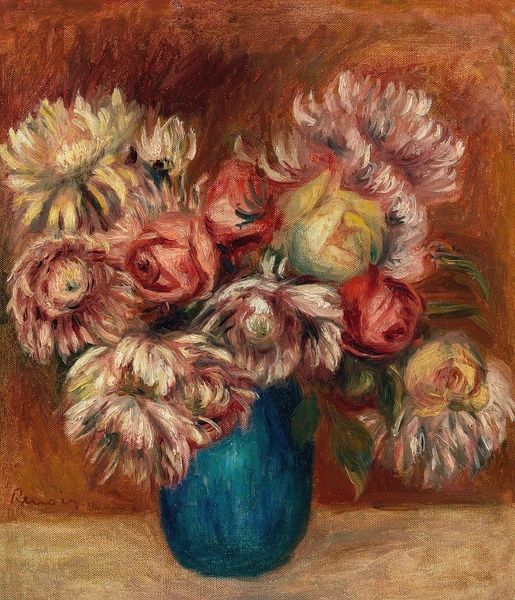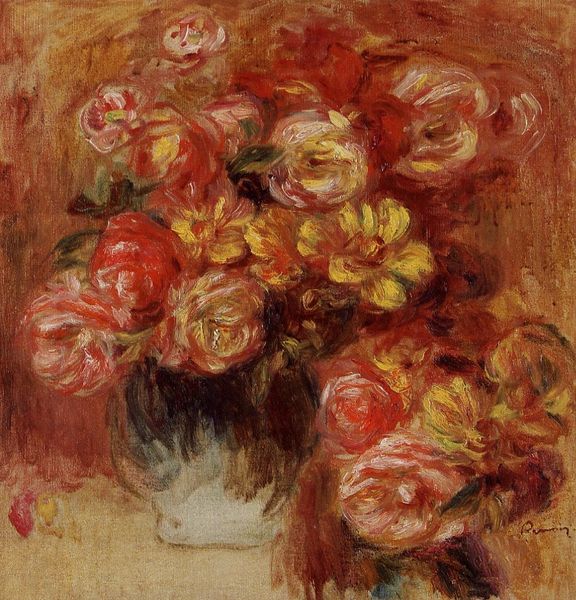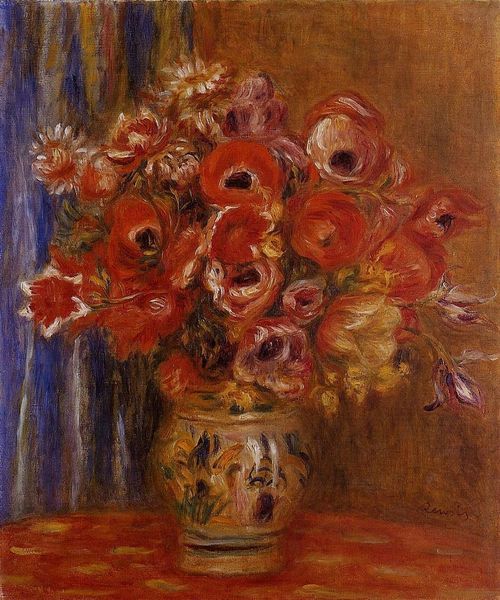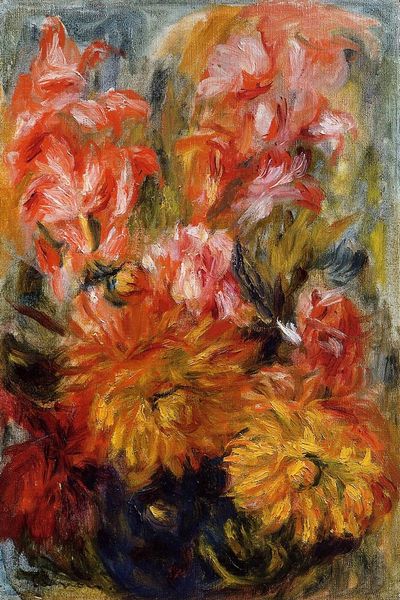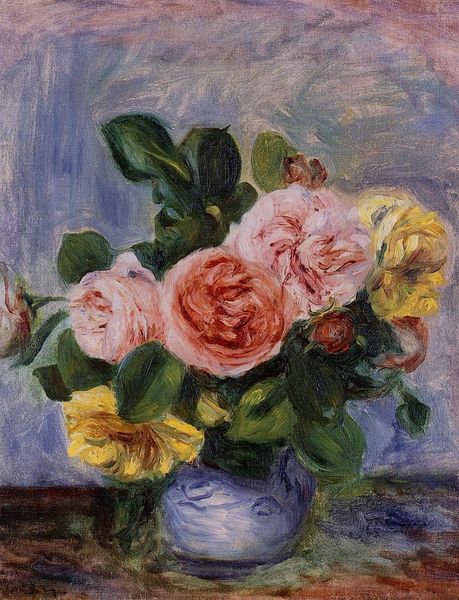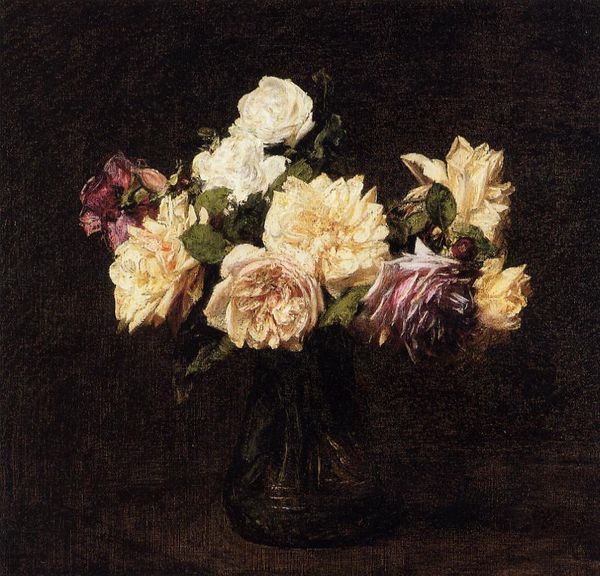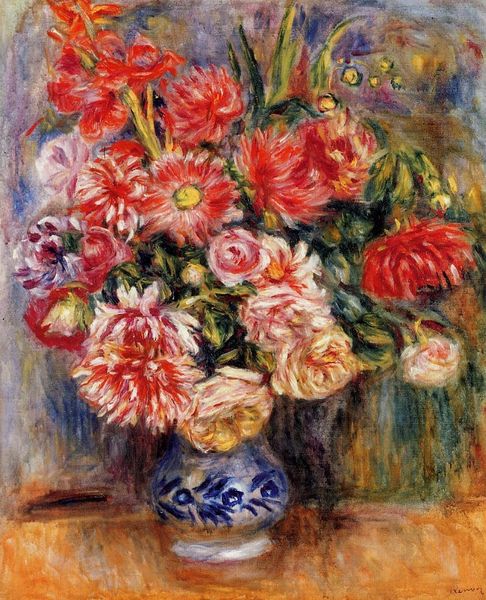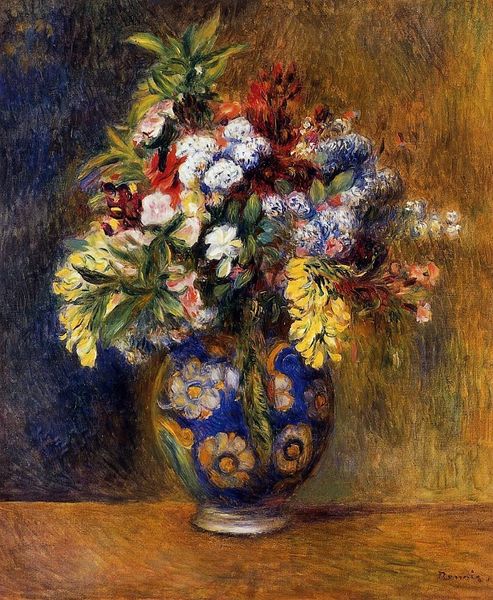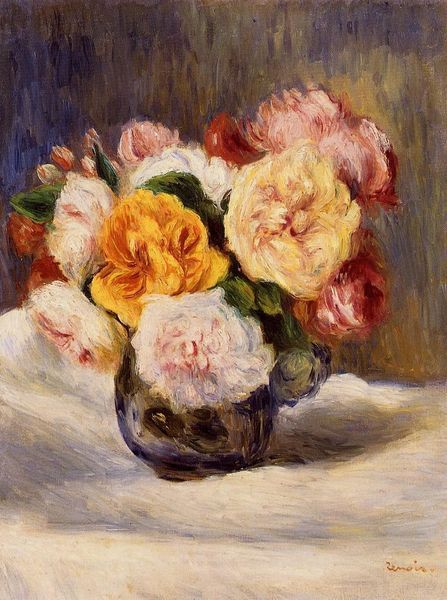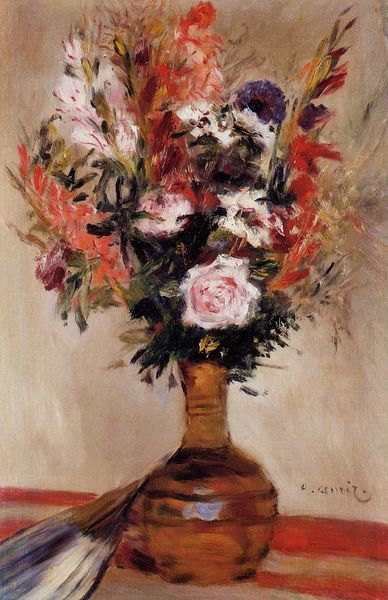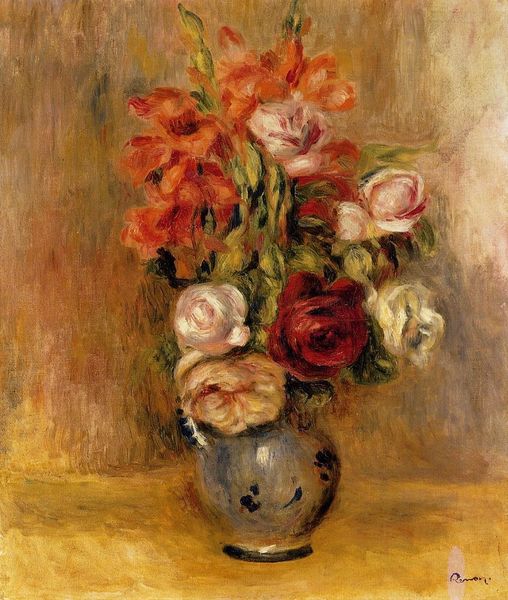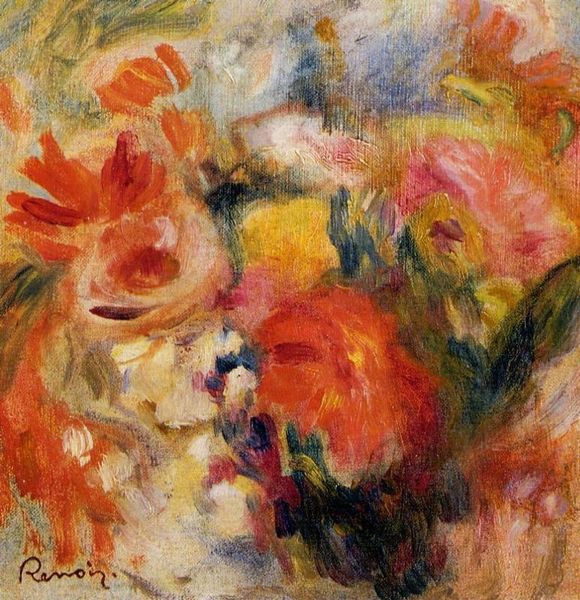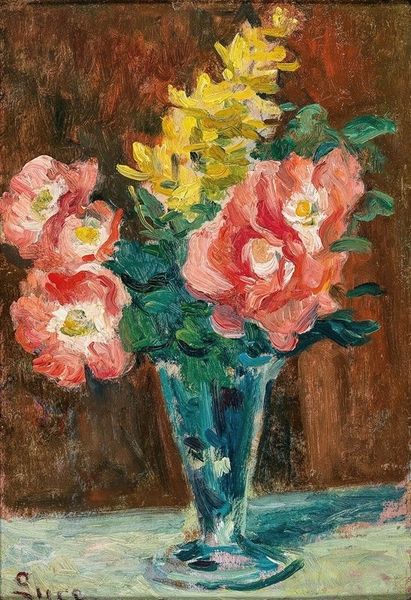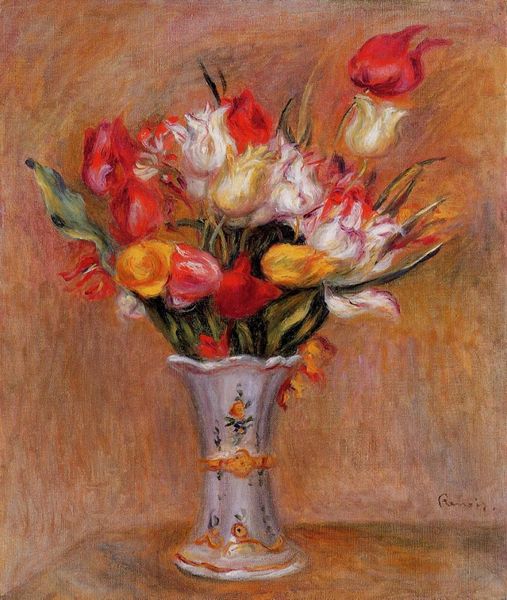
oil-paint, impasto
#
still-life
#
narrative-art
#
impressionism
#
oil-paint
#
flower
#
oil painting
#
impasto
#
intimism
#
realism
Copyright: Public domain
Editor: Here we have Renoir's "Vase of Peonies," painted in 1890, using oil paints. I'm immediately drawn to the thick, almost sculptural application of paint; it really emphasizes the texture of the flowers. What strikes you most about it? Curator: I see a focus on materiality. Look at how the impasto technique showcases the physicality of the paint itself. It isn't just representing peonies; it's highlighting the very act of creation and the labor involved. Consider, also, the availability and cost of pigments in Renoir's time. What does that tell us? Editor: So, you’re saying the choices weren’t just aesthetic? Were certain pigments harder to obtain, influencing the colour palette and thus the composition? Curator: Precisely. The production of these pigments involved specific processes, trade routes, even exploitation. The seemingly simple arrangement of flowers actually encapsulates a network of materials and human effort. How does seeing that alter your perception of "still life?" Editor: It completely transforms it. I was initially seeing only the surface – the pretty colours and the impressionistic style – but understanding the labour and materials shifts it into something much deeper. I never thought about the materiality of paint having any bearing on how I perceived narrative art and even realism. It definitely tests that boundary between decoration and commentary. Curator: Exactly. By acknowledging the materials and the making, we dismantle that false separation between ‘high’ art and craft. The vase isn’t just a vase, and these aren't just decorative flowers. Editor: It becomes about where the paint came from, who made it, who could afford the art, all sorts of social factors, and less about... beauty alone. It's much richer now, thank you.
Comments
No comments
Be the first to comment and join the conversation on the ultimate creative platform.
